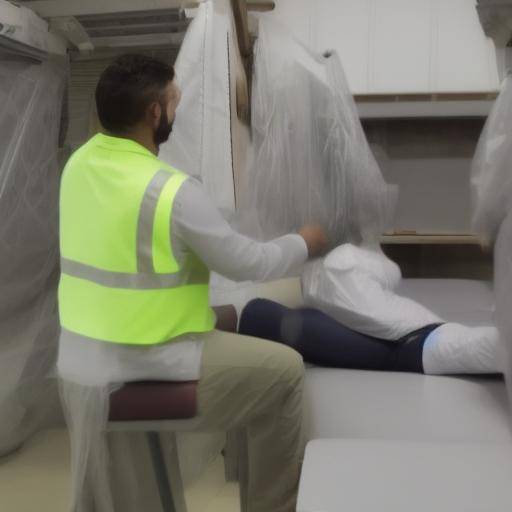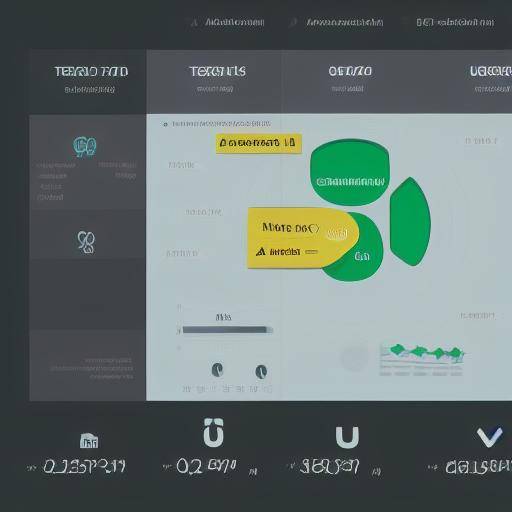
In the constant pursuit of physical and emotional well-being, self-care has become an essential element in maintaining a healthy balance in our lives. One of the practices that has gained great relevance in this process is conscious breathing. In this article, we will explore in detail the impact that conscious breathing has on self-care, as well as its influence on physical and emotional well-being. We will discover its history, benefits, practical applications, current trends and future predictions. We will also analyze the complexities of conscious breathing, self-care and physical well-being, while offering practical advice and expert quotations.
History and Background
The practice of conscious breathing has ancestral roots that go back to various cultures around the world. In India, pranayama is an ancient technique of breathing control used in yoga, while in Chinese tradition, qigong integrates conscious breathing into its energetic exercises. In the West, conscious breathing has been an integral part of many techniques of relaxation and meditation since ancient times.
Conscious breathing has evolved over the years, from being a spiritual practice to a tool used in mental health therapies, stress management and holistic well-being approaches. Scientific advances have supported its effectiveness, which has contributed to its popularization in contemporary culture.
At present, conscious breathing has become a daily practice for many individuals, as the connection between mind, body and breathing is recognized as a crucial element for self-care and physical well-being.
Analysis in Deep
Conscious breathing offers a wide range of benefits for self-care. Numerous studies have shown that this practice can reduce stress, improve concentration, increase mental clarity and promote relaxation. In addition, conscious breathing can have a positive impact on physical health by reducing blood pressure, improving sleep quality and strengthening the immune system.
The challenges associated with the practice of conscious breathing often include the difficulty in maintaining the concentration and integration of the technique into the daily routine. However, with proper guidance and consistent practice, these challenges can be overcome to maximize the benefits of self-conscious breathing.
Comprehensive review
The application of conscious breathing in self-care extends to a variety of areas, from stress management to improved quality of life. Conscious breathing practices range from simple abdominal breathing techniques to more advanced methods involving visualizations and respiratory frequency manipulation. The choice of appropriate technique depends on the individual needs and self-care objectives of each person.
Experts agree that the integration of conscious breathing into daily routine can be an incredibly valuable resource to foster a balanced and healthy lifestyle. In addition, conscious self-care may include the cultivation of healthy habits, such as adequate nutrition, physical activity and optimal rest, thus complementing the benefits of conscious breathing.
Comparative analysis
The connection between conscious breathing, self-care and physical well-being is undeniable. Conscious breathing is a fundamental component of self-care, as it provides an effective tool for managing stress, improving sleep quality and supporting mental and emotional health. At the same time, comprehensive self-care encompasses a holistic approach that includes practices such as conscious breathing, healthy eating, regular exercise and personal development.
Conscious breathing nourishes physical well-being by oxygenating the body and soothing the mind, thus promoting an integral balance. In turn, self-care encompasses measures that go beyond conscious breathing, such as physical health care, the development of positive relationships and the effective management of time and stress.
Practical Tips and Recommendations
For those who want to incorporate conscious breathing into their self-care routine, it is beneficial to start with simple abdominal breathing exercises. Regular practice, preferably at the same time every day, can help establish an effective habit of conscious breathing. In addition, the exploration of different breathing techniques and the incorporation of conscious breathing in moments of stress or anxiety can provide immediate and long-term benefits.
It is essential to recognize that self-care goes beyond conscious breathing and may involve other aspects, such as seeking professional support when necessary, connecting others to a significant level and adopting a proactive approach to physical and mental health.
Industry Perspectives and Expert Reviews
Professional acquaintances of mental health and well-being have expressed their support for the integration of conscious breathing into self-care. They have emphasized the importance of recognizing the connection between conscious breathing and general well-being, as well as the need to promote comprehensive self-care practices that include both the physical and the emotional aspect.
Experts have also highlighted the need for wider education on the importance of conscious breathing and self-care in today's society. Inculcating these practices from early ages can have a significant impact on health throughout life.
Case Studies and Real Life Applications
Many people have experienced significant improvements in their physical and emotional well-being through the regular practice of conscious breathing as part of their self-care. From busy executives to stressed students, conscious breathing has proven to be an invaluable tool to manage stress, improve focus and establish a sense of inner calm.
In addition, institutions and organizations have implemented conscious breathing programs as part of their well-being initiatives for employees and students, with positive results in terms of stress reduction, increased productivity and improved overall climate.
Future Trends and Predictions
As awareness of self-care and physical and emotional well-being continues to grow, conscious breathing is expected to continue to play a crucial role in promoting comprehensive health. Technological innovations have also opened new possibilities for conscious breathing practice, such as mobile applications and bio-feeding devices that can help people follow and improve their breathing technique.
As we move forward to the future, we are likely to see a greater integration of conscious breathing in clinical, school and labour environments, as well as a greater awareness of the importance of self-care as an integral part of a healthy lifestyle.
Conclusion
Conscious breathing is much more than a simple physiological action; it is a powerful tool that can nourish self-care and physical and emotional well-being. By recognizing its importance and practicing it consciously, we can cultivate greater harmony in our lives. As we continue to explore the vast world of self-care and well-being, conscious breathing remains a fundamental pillar for balance and fullness.
FAQs
What is the difference between conscious breathing and normal breathing?
Conscious breathing involves directing full attention to each inhalation and exhalation, using breathing as a tool to calm the mind and relax the body. In contrast, normal breathing is an automatic process that requires no conscious attention.
Can conscious breathing help with anxiety and stress problems?
Yes, many studies have shown that regular practice of conscious breathing can reduce levels of anxiety and stress, promoting a state of calm and mental clarity.
How long should I practice conscious breathing for benefits?
Even a few minutes of daily conscious breathing practice can offer significant benefits. However, spending more time on this practice can deepen the effects and overall well-being.
Are there specific conscious breathing techniques that are especially beneficial to self-care?
Yes, techniques such as deep abdominal breathing, 4-7-8 relaxing breathing and full breathing can be especially effective for self-care due to their ability to induce relaxation and soothe the mind.
What role does conscious breathing play in the management of physical pain?
Conscious breathing can play an important role in managing physical pain by helping to reduce anxiety and stress, which in turn can decrease the perception of pain.
Can you practice conscious breathing anywhere and at any time?
Yes, conscious breathing is a versatile practice that can be done anywhere and moment. It is a tool that can be used in times of stress, at home, at work or even during daily activities such as walking.
Conscious breathing is suitable for all ages?
Yes, conscious breathing is an adaptable practice that can benefit people of all ages. From children to older adults, conscious breathing can adapt to individual needs and provide benefits throughout life.
With these clear and meaningful answers, we hope to have clarified some of the common questions about conscious breathing and their relationship with self-care and physical and emotional well-being.
In short, the impact of conscious breathing on self-care is profound and significant. By integrating this practice into our daily lives, we can cultivate greater physical and emotional well-being, and navigate more effectively by the stress and challenges of modern life. Conscious breathing invites us to focus on the present, to connect with our inner being and to nourish ourselves at a fundamental level. Ultimately, this comprehensive approach to self-care can lead us to a more balanced, full and healthy life.






















































